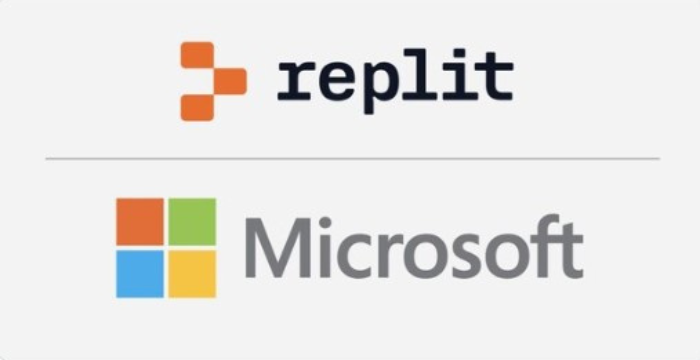Replit Strikes Major Deal with Microsoft, Ditches Google Cloud
by Muskan Kansay - 6 months ago - 4 min read

Replit’s latest move has certainly caught the tech world’s attention: the fast-growing coding platform has announced a strategic partnership with Microsoft, bringing its AI-powered development tools directly to Azure’s massive enterprise customer base. For those following the cloud computing landscape, this is more than just another business deal—it’s a significant shift, and, frankly, a bit of a blow to Google Cloud.
Replit, known for making software creation accessible to everyone, is now offering its services through the Azure Marketplace. This means that businesses using Microsoft’s cloud can spin up apps, manage databases, and handle authentication and storage, all powered by Replit’s AI, and all without needing to write traditional code. It’s a bold step toward “vibe coding”—yes, that’s the phrase making the rounds, which is all about describing what you want and letting the AI do the heavy lifting.
What’s striking is that Replit isn’t just making a cameo on Azure. The integration is deep, with support for Azure Container Apps, Virtual Machines, and Neon Serverless Postgres. The numbers are impressive too: Replit now boasts over 500,000 business users, and its annual recurring revenue has soared from $10 million to $100 million in just six months. That kind of growth is hard to ignore.
But here’s where things get complicated for Google Cloud. Historically, Replit has hosted its applications on Google’s infrastructure, and Google has even highlighted the partnership as a success story. Now, with Microsoft sharing in the revenue from Replit-powered apps running on Azure, Google’s position is less secure. Replit says the deal isn’t exclusive—Google Cloud isn’t being abandoned—but it’s hard not to wonder how much future growth will shift toward Microsoft as a result.
From Microsoft’s perspective, this partnership is a win. It strengthens Azure’s appeal to enterprises looking for no-code and low-code solutions, and it positions Microsoft as a leader in the rapidly growing market for AI-driven software development. For Replit, the benefits are clear: access to Microsoft’s vast enterprise network and the credibility that comes with Azure’s security and compliance standards.
It’s worth noting that Microsoft already has GitHub Copilot, which is popular among developers. But Replit’s tools are aimed at a much broader audience—product managers, designers, and business teams who want to build apps without waiting on IT. This democratization of software creation is a trend that’s only going to accelerate.
One can’t help but wonder if this is the start of a new wave in enterprise tech. No-code and AI-powered development are on the rise, and companies want speed and flexibility. If Replit and Microsoft can deliver on that promise, others will likely follow suit.
This partnership feels like a smart, forward-looking move for both companies. Microsoft gains a powerful new offering for its cloud customers, and Replit gets a seat at the enterprise table. For Google Cloud, it’s a moment to reflect and perhaps rethink its strategy. The competition in cloud and AI development is heating up, and it’s anyone’s guess where things will go from here. But one thing is clear: the way we build software is changing, and this partnership is a sign of things to come.